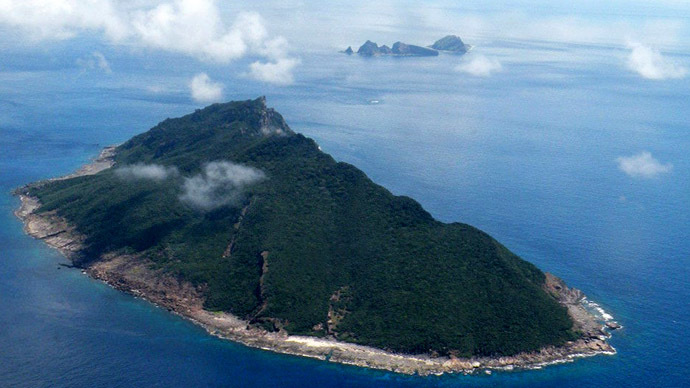Which Is it?
"It continues to be our view that the policy announced by the Chinese over the weekend is unnecessarily inflammatory and has a destabilizing impact on the region."
White House spokesman Josh Earnest
"The Chinese can now start counting and reporting what they call Japanese violations, while arguing that the Chinese side has shown great restraint by not exercising what they will call China's right to shoot, and arguing further that China cannot be so patient indefinitely."
Denny Roy, security expert, East-West Center, Hawaii
Cheng Yonghua (C), Chinese Ambassador to Japan, leaves after meeting with Akitaka Saiki, Japan's Vice Minister for Foreign Affairs at the Foreign Ministry in Tokyo November 25, 2013. (Reuters/Toru Hanai)
"The United States, on the issue of the Diaoyu islands, must earnestly not take sides, not make inappropriate remarks and not give the wrong signal to Japan and encourage [its] risky behaviour. We reiterate that the purpose of China's approach is to defend national sovereignty and territorial airspace security, maintain the order of airspace flight, and is an effective exercise of our right of self-defense."
Col. Yang Yujun, Chinese Defense Ministry spokesman
The United States has responded to China's recently issued map and new rules governing the Pacific zone between Japan and China, an area which includes a cluster of islands claimed both by Tokyo and Beijing, and currently controlled by Japan. All international aircraft planning to enter the new air defence zone have an obligation, China stated, to notify Chinese authorities for permission.
 |
| This aerial shot taken on September 15, 2010 shows the disputed islands known as Senkaku in Japan and Diaoyu in China in the East China Sea. (AFP Photo/Jiji Press) |
They will be subject to emergency military measures should they not identify themselves, or should they choose to ignore these new orders from Beijing. The United States chose to do both. Two U.S. B-52 bombers flew over those very disputed islands in the East china Sea, as a training mission. They left Guam and flew over the zone for under an hour, with no interference from China. China, however, did track their presence.
In the Middle East, President Barack Obama is championing a new American policy. It focuses hugely on diplomacy. Conflict to be avoided at all cost. No challenges to episodes of national insanity within the Middle East, with one government brutishly annihilating its political opposition and targeting its civilian population with bombs, chemical warfare and military gang rape. The red line in the sand on that one resulted in forgiveness.
When another Middle East country whose nuclear aspirations have been a primary concern both for its neighbours and the international community resulting from its belligerence and threatened promises of destruction of another state, defied United Nations and IAEA concerns and sanctions, and continued to develop longer-range missile-delivery systems and the nasty little nuclear-tipped missiles geared to intimidate and instill fear, that too resulted in a dignified grace of diplomatic action.
The United States has chosen, under this diplomatic-minded, conflict-averse president who holds the distinction of a Nobel Peace prize, to abandon all its traditional allies in the Middle East, and to replace them with the more inspiring, certainly Islamist-inspired, country identified as the most impressively-terror-inducing, terror-delivering in the region, stamping 'acceptable' on its international visa of acceptability.
On the Pacific front, however, the United States has transformed itself into a belligerent challenger, goading China, creeping up to super-power status to itself challenge the sole current super-power swaggering into its territory. Its allies there are Japan, Taiwan, South Korea, the Philippines, all concerned over the sovereign entitlements that China has recently granted itself permission to assume without question or civil consultation.
 |
On behalf of its friends and allies in that region, the United States which now has hundreds of military aircraft based in the region, has announced its rejection of compliance with China's ultimatum extended imperiously toward its neighbours to respect its new boundaries or suffer the consequences.
The United States has suddenly, under the Obama administration, developed a split personality. Will the true America please stand up?
Labels: Aggression, China, Conflict, Japan, Middle East, United States


<< Home